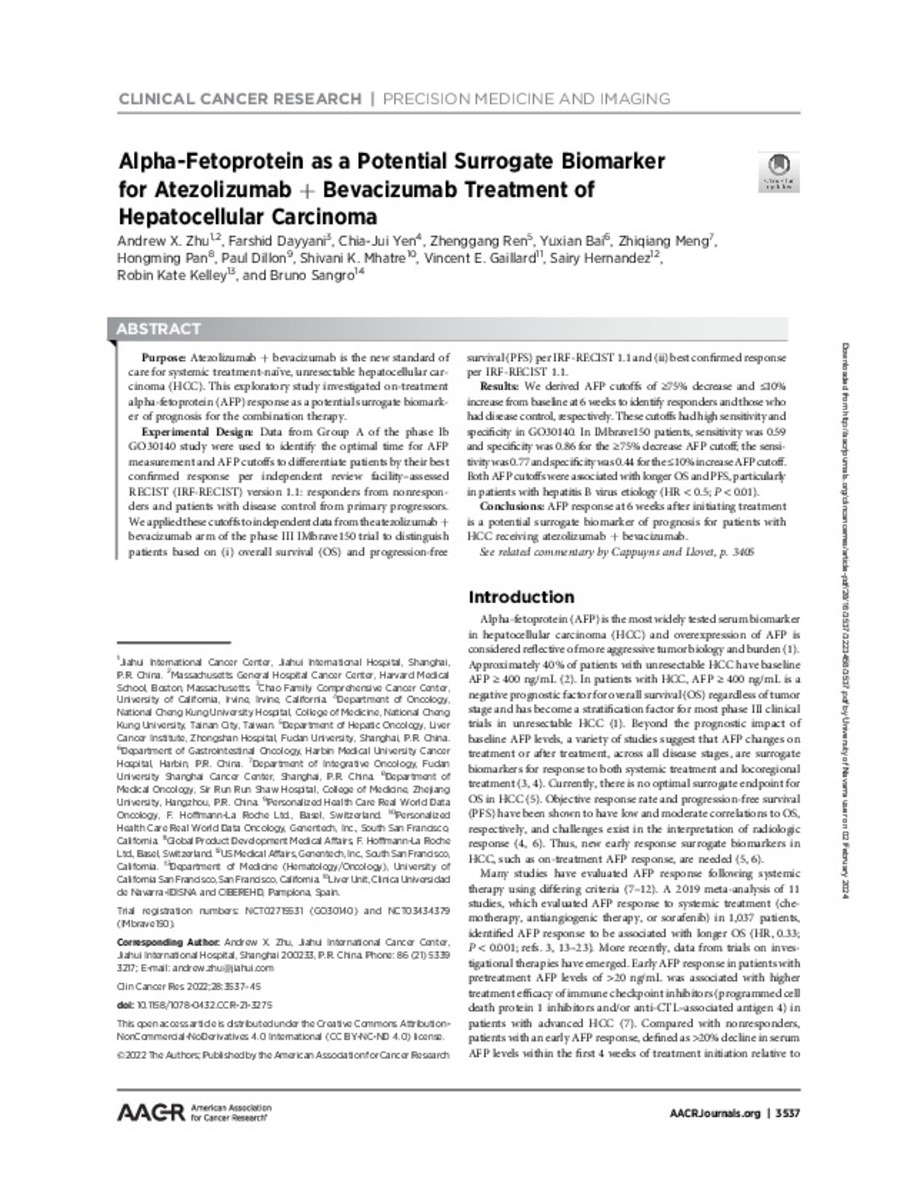Alpha-fetoprotein as a potential surrogate biomarker for atezolizumab + bevacizumab treatment of hepatocellular carcinoma
Keywords:
Atezolizumab
Bevacizumab
Alpha-fetoprotein (AFP)
Hepatocellular carcinoma (HCC)
Publisher:
American Association for Cancer Research
Note:
This open access article is distributed under the Creative Commons AttributionNonCommercial-NoDerivatives 4.0 International (CC BY-NC-ND 4.0) license.
Citation:
Zhu, A.X. (Andrew X.); Dayyani, F. (Farshid); Yen, C.J. (Chia-Jui); et al. "Alpha-fetoprotein as a potential surrogate biomarker for atezolizumab + bevacizumab treatment of hepatocellular carcinoma". Clinical Cancer Research. 28 (16), 2022, 3537 - 3545
Statistics and impact
0 citas en

0 citas en

Items in Dadun are protected by copyright, with all rights reserved, unless otherwise indicated.







